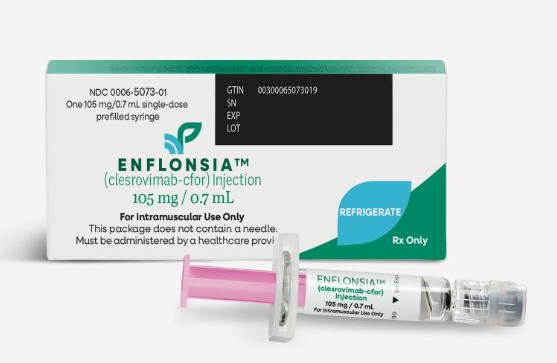Story Highlights
- A new, experimental vaccine against celiac disease has been granted fast-track status by the FDA, indicating a perceived urgency in getting the vaccine to market.
- Celiac disease has been increasing dramatically over the last 50 or so years, approximately mirroring the introduction of new breeds of wheat, bred for greater yield, that now account for close to 90 per cent of wheat farmed worldwide.
- Although some place the blame squarely on the new wheat, others suggest that is too simplistic a view and many other factors may be responsible, including greater intake of wheat overall.
Earlier this year, the U.S. Food and Drug Administration (FDA) gave the green light to fast-track approval status for ImmusantT’s experimental vaccine Nexvax2, designed to protect patients with HLA-DQ2.5-dependent celiac disease from the effects of gluten exposure.1 Patients who carry the HLA-DQ2.5 immune recognition genes account for at least 90 percent of cases. Having completed Phase 1 studies “supporting safety and tolerability as well as proof-of-mechanism and effectiveness,” a global Phase 2 study of Nexvax2 is currently enlisting patient participants.
The new vaccine is ImmusantT’s flagship offering, representing the company’s plans for developing its “Epitope-Specific Immuno-Therapy™ (ESIT™) platform” to provide first-in-class peptide-based immunotherapy vaccines to restore immune tolerance to patients with a wide range of autoimmune diseases, beginning with celiac disease and type 1 diabetes.2 Speaking for the company about the FDA’s decision, Leslie Williams, chief executive officer for ImmusanT, said, “We view the fast track designation for our lead candidate, Nexvax2, as a testament to the significant need for bringing therapeutic solutions to patients with celiac disease as quickly as possible.”3
Fast-track designation is, by definition, “a process designed to facilitate the development, and expedite the review of drugs to treat serious conditions and fill an unmet medical need,”4 or for therapies that are expected to improve significantly upon existing treatments. Both measures may be somewhat subjective and are affected by a number of outside considerations.5 By all definitions, however, fast-track status implies some urgency for getting a therapy approved.
What is Celiac Disease?
Celiac disease is an autoimmune disorder in which the body’s immune system response mounts an attack whenever the sufferer ingests gluten ((a protein found in wheat, rye and barley), resulting in damage to the small intestine and an inability to process nutrients normally. Undiagnosed or untreated disease can lead to a host of serious health issues, including:
- Iron deficiency anemia
- Early onset osteoporosis or osteopenia
- Infertility and miscarriage
- Lactose intolerance
- Vitamin and mineral deficiencies
- Central and peripheral nervous system disorders
- Pancreatic insufficiency
- Intestinal lymphomas and other GI cancers (malignancies)
- Gall bladder malfunction
- Neurological manifestations, including ataxia, epileptic seizures, dementia, migraine, neuropathy, myopathy and multifocal leucoencephalopathy
- Higher risk of developing additional autoimmune disorders such as anemia, autoimmune thyroid disease, dermatitis herpetiformis, type 1 diabetes and unexplained infertility, among others, especially when celiac is diagnosed later in life6
Currently, the only treatment for celiac disease is strict adherence to a gluten-free diet.
In the 1950s, celiac disease was rare and commonly went undiagnosed. To determine both the impact of undiagnosed disease on overall mortality and whether evidence showed a true increased in incidence, researchers out of the Mayo Clinic and the University of Minnesota Medical School in Rochester compared sera collected between 1948 and 1954 with recently acquired samples from a comparable population.7 What they found was that undiagnosed celiac disease incidence “increased dramatically”—more than a four-fold increase—since the historic samples were drawn, up from 14 (0.2 percent) positive cases in the original 9,133 samples to 68 (0.9 percent) in the age-matched samples from the study period. Undiagnosed celiac disease also was associated with a four-fold increased risk of death overall. Prevalence rates are comparable in many parts of the world today.
A large meta-analysis study showed that by 2016, incidence of celiac disease had risen to a global incidence of 1.4 percent when defined by markers in the blood, and 0.7 percent for disease confirmed by biopsy. The highest rates were found in Europe (0.8 percent) and Oceania (0.8 percent), and the lowest rates were in South America (0.4 percent). Overall, celiac disease was 1.5 times more common in females than males and was found twice as often in children compared with adults. That study also found that the worldwide prevalence of celiac disease rose from 0.6 per cent in the period between 1991 to 2000 to 0.8 per cent in the period between 2001 and 2016.8 Even with those numbers, it is estimated that more than 80 per cent of celiac sufferers remain misdiagnosed or undiagnosed.9
Factors in Increased Incidence of Celiac Disease
What has happened to change celiac disease from a rarely encountered digestive disorder into one in urgent need of attention? Not only have celiac disease and other gluten sensitivities spawned a wide “gluten-free” market for the food industry, they have now gotten the attention of the drug and vaccine makers, with new treatments designated for fast-track approval by the FDA.
Several things may be contributing to the global rise in celiac disease and, as is often the case, there is some disagreement over the relative impact of the various factors identified. One issue is generally agreed upon: Because genetic changes do no not take place quickly, the “most likely explanation may be environmental, such as a change in quantity, quality, or processing of cereal.”10
One of the most popular theories is that modifications in the wheat we grow and eat has changed so dramatically since early agricultural times that those who are genetically susceptible can no longer tolerate foods made with the “new wheat.” William Davis, MD, author of the popular book Wheat Belly, has been quoted as calling today’s wheat a “perfect, chronic poison,” saying it is nothing like the wheat used 100 years ago but is instead a high-yield, genetically modified grain from the 1960s and 70s with proteins that bind to the opioid receptors in the brain and encourage overeating, besides contributing to other health challenges including diabetes, arthritis, leg swelling, acid reflux, irritable bowel syndrome and depression. It is his belief that most people suffer to some extent from consumption of wheat and other grains, though not all to the extent as someone with celiac disease.11
Despite acknowledging relatively recent major changes in wheat genetics, much higher intake of wheat in bread and most other processed foods and changes in food processing overall, many scoff at the idea that changes in wheat have led to the uptick in incidence of celiac and other gluten sensitivities, saying instead that today’s wheat remains nutritionally similar to that used 150 years ago.12
Nevertheless, it is true that new varieties of wheat bred to increase crop yields were introduced about 50 years ago, and those strains now make up approximately 90 percent of the wheat grown around the world. The scientists who worked on those new varieties have expressed skepticism that increased gluten in the new wheat itself was toxic and responsible for the increase in gluten sensitivities. Donald Kasarda, PhD, a research chemist with the U.S. Department of Agriculture (USDA) says he has not found any evidence that gluten levels have changed and suggests instead that increased consumption of wheat products and the addition of vital gluten to baked goods, as well as agricultural practices that affect protein content all may play roles in making dietary wheat problematic for those with the genetic susceptibility for gluten sensitivity.13
Celiac specialist Daniel Leffler, MD has also questioned the idea of blaming any one thing for the rise in gluten intolerance, suggesting instead that the increase in so many types of autoimmune disorders today may be linked to something like the “hygiene hypothesis,” which is the “idea that our environment has become so clean and sterile that our immune systems no longer have to fend off so many bugs and infections, especially when we’re young… As a result, our immune systems start to overreact to things that should be harmless, such as wheat or peanuts.” Other hypotheses include changes in gut bacteria, antibiotic use early in life, timing of introduction of wheat and other grains to infants and other, as-yet-unrecognized proteins in wheat that have nothing to do with gluten.14
References:
1 ImmusantT, Inc. ImmusanT Secures Fast-Track Designation for Lead Therapeutic Vaccine Candidate Nexvax2 for Patients with Celiac Disease (CeD). Globe Newswire Jan. 2, 2019.
2 About ImmusantT. ImmusantT, Inc. 2018.
3 ImmusanT Secures Fast-Track Designation for Lead Therapeutic Vaccine Candidate Nexvax2 for Patients with Celiac Disease (CeD). ImmusantT, Inc. Jan. 2, 2019.
4 Food and Drug Administration. Fast Track, Breakthrough Therapy, Accelerated Approval, Priority Review. U.S. Department of Health and Human Services. Feb. 23, 2018.
5 Raines K. Drugs and Vaccines on FDA’s Fast Track. The Vaccine Reaction Jan. 17, 2019.
6 What Is Celiac Disease? Celiac Disease Foundation 2019.
7 Rubio-Tapia A, et al. Increased Prevalence and Mortality in Undiagnosed Celiac Disease. Gastroenterology July 2009.
8 Singh P, et al. Global Prevalence of Celiac Disease: Systematic Review and Meta-analysis. Clinical Gastroenterology and Hepatology 2018.
9 Celiac Disease: Fast Facts. Beyond Celiac 2019.
10 See Footnote 7.
11 Cochran A. Modern Wheat a “Perfect, Chronic Poison,” Doctor Says. CBS News June 21, 2013.
12 Rosenbloom C. Wheat Has Not Changed. Food and Nutrition July 6, 2015.
13 Kasarda DD. Can an Increase in Celiac Disease Be Attributed to an Increase in the Gluten Content of Wheat as a Consequence of Wheat Breeding? Journal of Agricultural and Food Chemistry Feb. 13, 2013.
14 Barclay E, Aubrey A. Doctors Say Changes In Wheat Do Not Explain Rise Of Celiac Disease. NPR Sept. 26, 2013.













12 Responses
A vaccine for CD? Call it a vaccine so there is no liability??? Where is the vaccine for insanity, i.e. ImmusantT???
Rather than blame gluten, try this. Eliminate glyphosate from your diet, and see what happens. For many people, ‘celiac symptoms’ disappear. Glyphosate plugs up the liver and Vit A and other toxins build up, creating Vitamin A toxicity, etc.
I became gluten intolerant at 47 after taking IV Levaquin in hospital and then few months later a Tetanus shot [the ONLY one that contains the trifecta of mercury, aluminum & formaldehyde]. First I lost my voice for six weeks and never returned to normal. Then despite eliminating many foods I was in agony after nearly every meal. Finally discovered it was not the tomatoes or the cheese but the pasta that was making me sick. Eliminated all gluten [there is a learning curve to find everywhere it lurks] and felt way better. Still had allergy to citrus & beef which came on suddenly as well. Fluoroquinolones [Levaquin,Cipro,Factive,Avelox] are chemo drugs that ALTER THE DNA OF BACTERIA AT THE POINT OF REPLICATION. Now you are genetically modified and can’t grow back the good bacteria in balance any more. Can’t digest. Can’t sleep. Severe tendon and peripheral neuropathy , and now in litigation for delayed retinal detachment. Side effects were not even published till 2006 [approved in 1986] with 30 million scripts a year. So a huge portion of the population has been damaged by these drugs. Add to that the fact that so much of our food ,water,air and VACCINES are contaminated with GLYPHOSATE which along with heavy metals also prevents uptake of minerals and you have a whole population with compromised immune systems who don’t feel good enough to do anything but sit in front of a screen and soak up EMFs.
Celiac is not a communicable disease. No need for a vaccine. Crazy!!!!!!
Nexvax2 is a therapeutic vaccine used to cure an individual who has the disease. By your logic, since cancer is not a communicable disease, there is no need for a vaccine, despite being the second leading cause of death globally. Yes, celiac disease is not fatal, unlike cancer, but you are arguing against something that will have a positive impact on many people.
I agree with Ellie. It’s the glyphosate causing the problem, and it’s showing up in our meats as well. I changed my diet to avoid products containing gluten and only eat grass-fed meats from local, organic farms. Big improvement.
I have a good friend, Cecilia, whose son has been labeled “glucose intolerant” and every time he eats something like Pizza, or Ice Cream, he is sent immediately to the toilet with diarrhea in no time at all. Isn’t this the same thing as “Celiac Disease?” Perhaps, he hasn’t been given the correct title to his illness by Radys?
Vaccines are gross – period – Outrageous medical fraud and a complete scam.
I challenge anyone to explain to me what’s in them, where they were made, why they’re so awesome, why we need brain damaging mercury and aluminum injected into our bodies and why we should trust these psychotic pharma borgs – making our babies and us sick.
I really really don’t get how ANYONE (unless they’re a troll -and there are a few on this site as we already know)
is still defending this voodoo trickery and (((spacing out vaccines))). It’s about as stupid as getting them all at once ‘on time’ – cough cough. No amount of poison is on a safe schedule. Seriously?
They are ALL TOXIC POISON and completely utter nonsense.
The science-(((fiction))) is in though (thanks Hillary) and we are being labeled as terrorists for not going along quietly to our destruction. What a truly sad state we’re in.
A typical industry plan: Take a problem that is caused from environmental factors (food, pesticides, herbicides, heavy metals, parasites, mold, etc.) and find a pharmaceutical “answer”. Why tell the patient they don’t need drugs? Why ask them to make sometimes-painful lifestyle changes, when one little pill or injection can “cure” you, or even prevent it every happening? Wow! this might be the next great drug in the Alzeimer category, i.e. lots of hype but NO RESULTS.
There should be vaccines against narcissism and government corruption. Fast track is ok in this case.
it all comes back to the food we eat and it is very difficult to eat healthy in our country. Why, because the government does not want to kill us only poison us so we go to our useless Doctors and are prescribed some drug to not fix the problem but only slowly kill us? The joke is on us the human experiments for there profit?
Yes lots of factors come into play, but the reality is, that food has been altered and our bodies don’t recognize and can’t process it correctly. Is a vaccine the answer/ solution or should we consider going back to using foods in their natural state?
Really people? I am about as anti-vaccine as they come, but I can’t wait for this treatment to be available. I live with celiac disease. Diet and lifestyle changes will not reverse the disease or restore tolerance to gluten. This is not really a vaccine, and I think it is misleading to label it as such. This is immunotherapy, like allergy shots are. It will need to be done on a schedule, the same way allergy shots are given. It is obviously not to “protect” you from celiac disease, but to try to retrain the immune system to reduce reactivity to gluten. For a lot of us with celiac disease this is a miracle, because we will be able to eat out at restaurants and not worry about cross contamination. You have no idea how hard it is to cook every meal from scratch and bring a cooler with you everywhere. It is very socially isolating, and extremely time consuming and expensive to maintain a strict gluten free diet. Most of us are already doing all we can with diet, probiotics, and reducing environmental triggers. Taking glyphosate out doesn’t suddenly cure you of the autoimmune disease if you’ve already developed it.